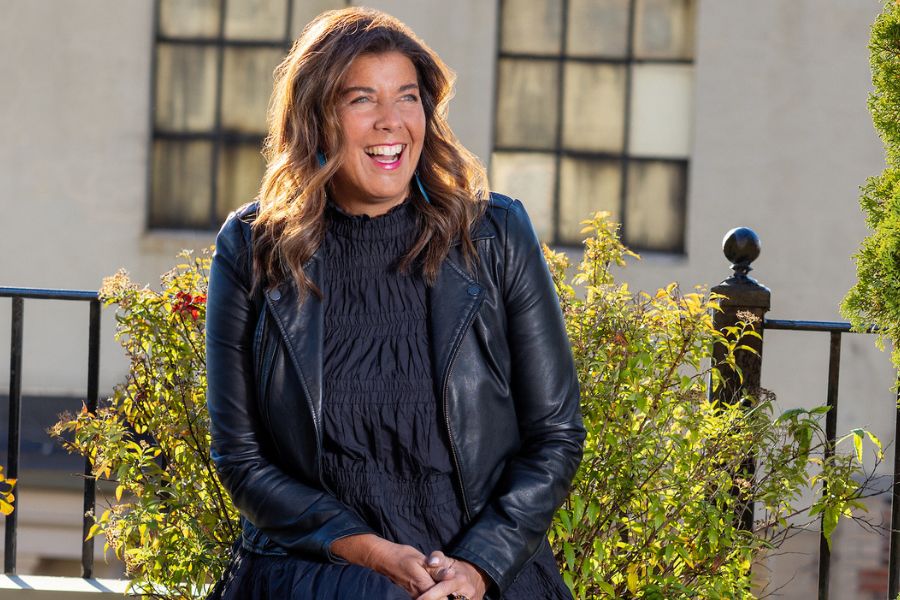Having started her career in 1994 at MullenLowe when the agency consisted of one office in Wenham, Massachusetts, Kristen Cavallo knows the agency from the inside out.
After moving between The Martin Agency and MullenLowe over the next couple of decades, she was made The Martin Agency CEO in December 2017. In November 2022, Cavallo was promoted to become global CEO of MullenLowe, while holding on to her role at The Martin Agency.
With an expanded role, Cavallo wants MullenLowe to value the importance of valuing creativity and developing relationships with clients who have demonstrated their capability for brave work.
In an interview with Campaign Asia-Pacific when she was in Singapore, Kristen Cavallo, chief executive officer of The Martin Agency and MullenLowe Global, stated that the agency's philosophy is not to focus on brands but on clients who have done exceptional work regardless of the brand, product, or industry.
"I'm a hands-on person in client relationships, born out of a belief different from many of my peers. When I ran new businesses in my prior roles, I believed any brand could be significant," explains Cavallo.
"As a starter, our job is to make them great, but only some will be. However, it's not because of the brand, product, or industry. The clients either don't value creativity or must learn how to protect and fight for it. I look every year at the clients doing the best work, the work that stands out, that is brave. I follow them on LinkedIn. I look at the people around them and their work."
Cavallo says she follows her key clients throughout their careers, regardless of what brand they represent. She tries to go after those pieces of business because she knows that person is capable of brave work.

"When I get that person and develop a relationship, I stay in touch with them. I call them all the time. I text or call them if I am randomly walking and thinking about things. So I am close to many of my clients," says Cavallo.
An important learning on brand positioning after working with brands like Mondelez, UPS, and Geico in the USA, is that brands need enemies. They need enemies more than purpose, in fact both are required to define the other.
"Clients must understand what they stand against as a brand, not just their purpose. Defining your enemies can be more critical when positioning your company than your purpose. This can be a breakthrough in positioning yourself, as not all companies have the same enemies," explains Cavallo.
"Drawing attention to your brand can come from debates or tension, ultimately driving sales. Building a tolerance for relevance and standing out takes courage, patience, and trust. Trust your consumers to stand up for you and your agency to let you go to places where you might be alone or first. Relevance is a collaborative experience and requires a lot of effort to achieve."
Improving diversity within MullenLowe
In Campaign's Agency Report Card 2021, we said that the agency falls short in its people and inclusivity initiatives. When questioned, Cavallo did not debate the importance of diversity in leadership teams. It is vital and that diverse groups have higher margins, revenue, and morale, she opines.
She further elaborates on how homogeneity, favouring either gender, creates a culture of exclusion. Any gender, or race, or ethnicity when underrepresented feels undervalued and underperforms. Homogeneity could include all females, which is not ideal, but diversity in leadership teams is essential for success.

"A diverse leadership team outperforms homogenous leadership teams. However, that doesn't mean homogeneity can mean all females too. That's not good, either. So I'm looking for diversity in my leadership teams. I believe, and research has proven, that diverse leadership teams have higher margins, higher revenue, and higher morale," explains Cavallo.
"That is ultimately what Paul (Soon) and I, and all my CEOs, are responsible for, and it's one of the levers we can control. So it's something I will be looking for, and if they're not diverse in their leadership team, I will ask why? Because I know it works."
She adds: "In a perfect world, or at least right now in the US, I must think it through. It might be a 60-40 gender split. But you know, I wouldn't go anywhere. So 60-40 or 50-50 is fine. We are probably too skewed when it gets to 70-30."
The importance of PR in sustainability
Cavallo is also a firm believer in the role of PR in building a brand's reputation and increasing its visibility.
She acknowledges the importance of sustainability, which is MullenLowe Salt's primary focus, and mentions that PR capabilities are necessary across all groups, even if they do not do it for their clients' work.
"Salt has become fully assimilated into the offices where it resides. Its practice focus is still primarily on sustainability. I am a huge believer in the role of PR, though. It is the tip of the spear for all brands. And so, in areas where we do not have Salt, I think we might bring Salt in if it makes sense for that market," says Cavallo.
"Indeed, sustainability makes sense today for brands and companies. But all our groups also need PR capabilities, even if they don't do it for their clients' work. We need to do it for ourselves but certainly for our clients. As a result, the most talked-about brands grow faster."
Cavallo also stresses that just doing work and putting it out in the world is insufficient.
"We have to make sure that people know we have done the work, not necessarily that we, MullenLowe, have made it, but that the client, Unilever, or DoorDash, or whomever, whoever the client is, the consumers need to know that they have made that work. So we need to draw their attention to it," says Cavallo.







